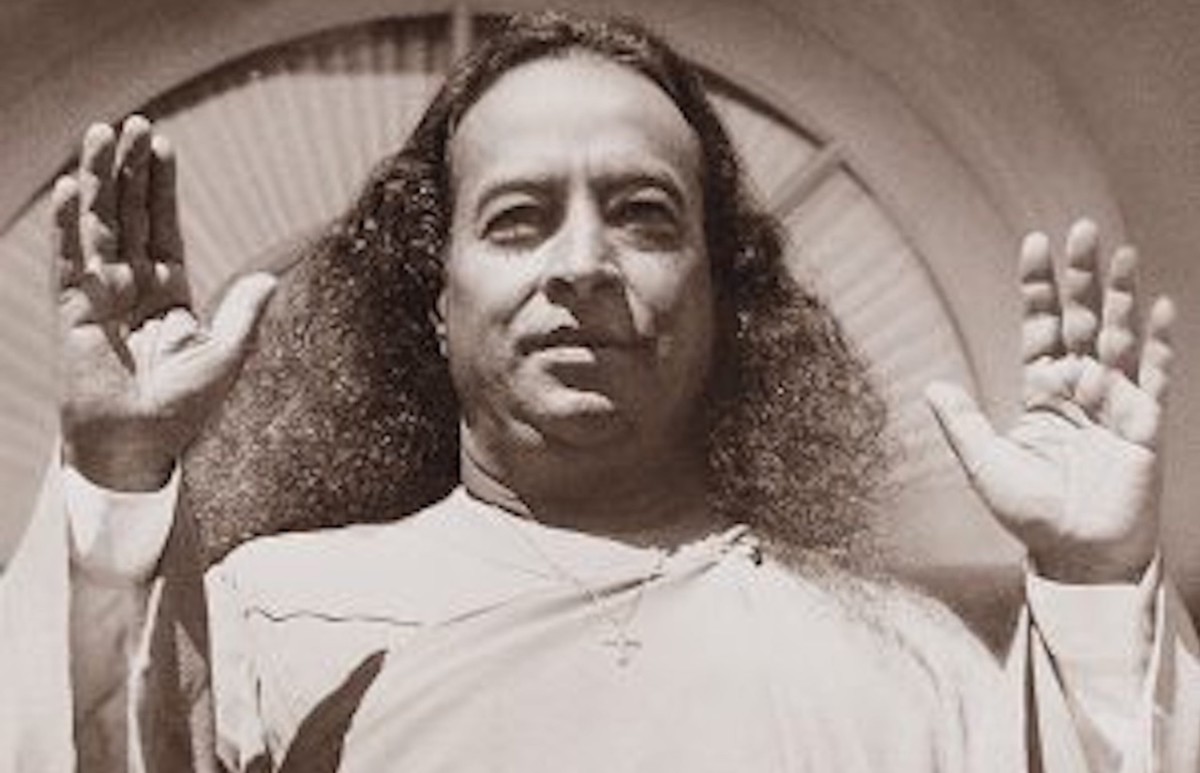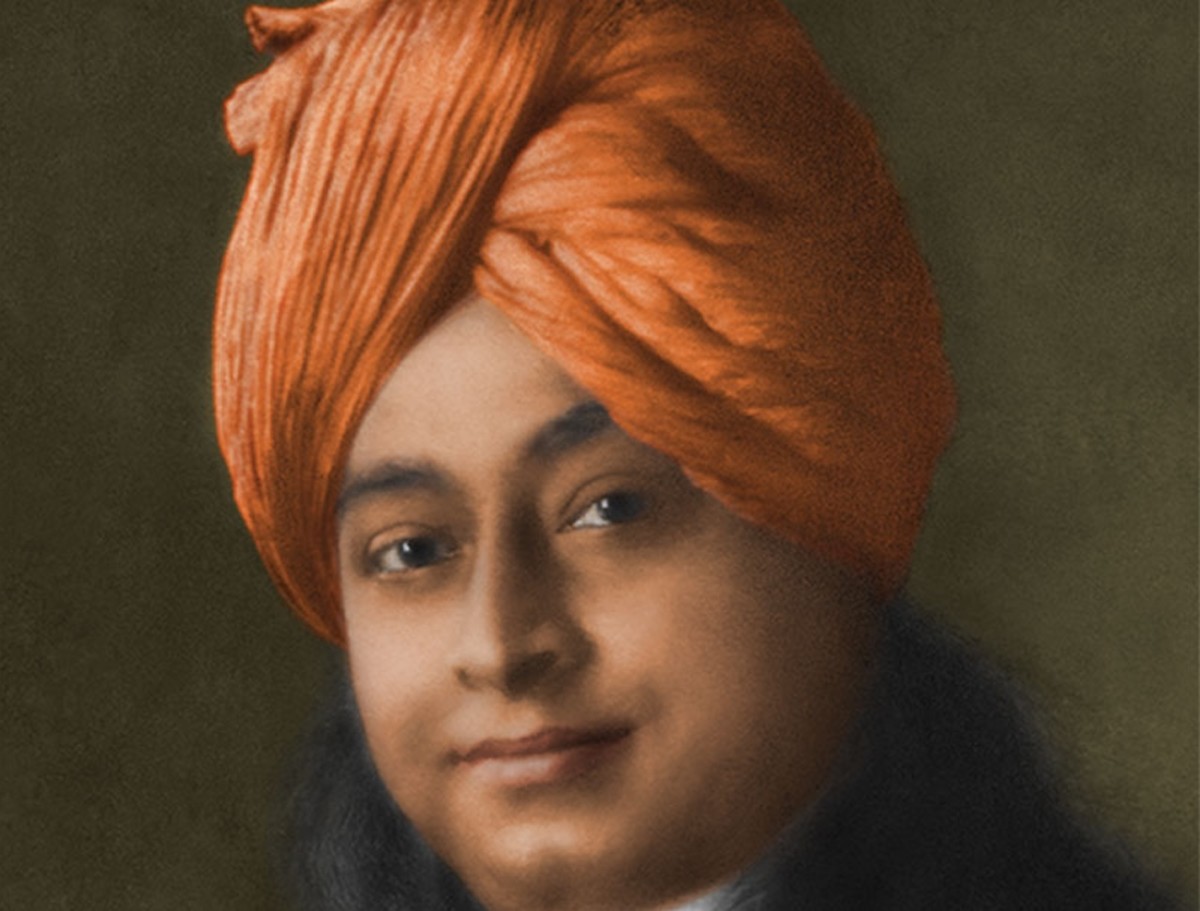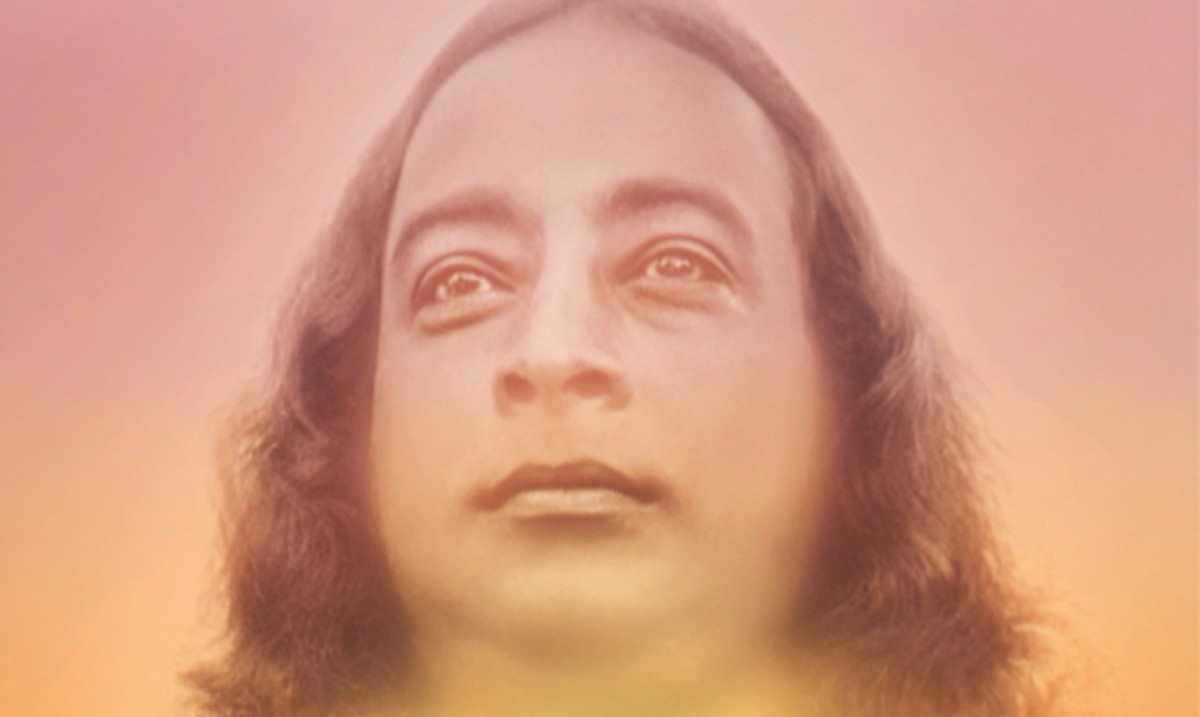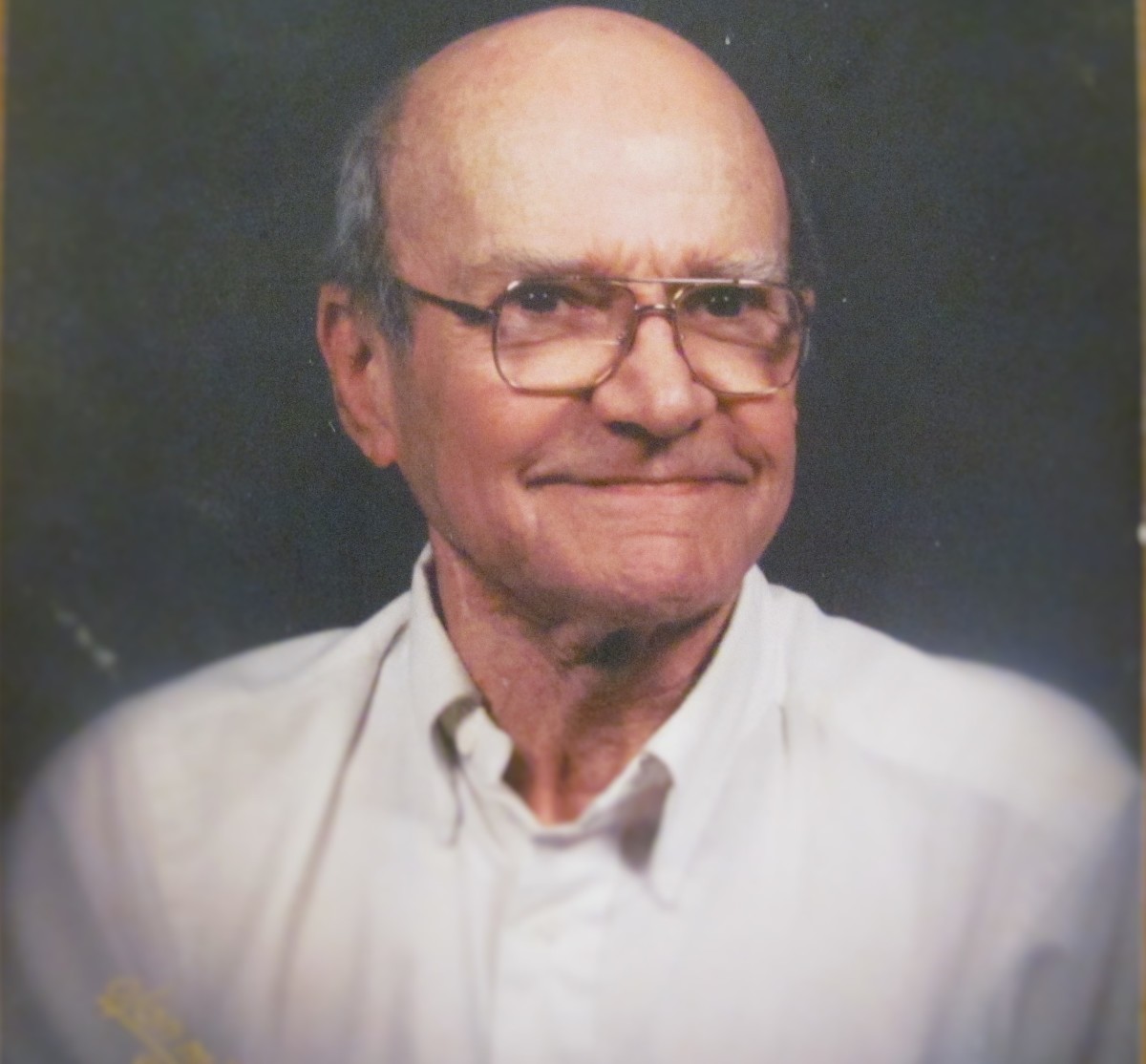Paramahansa Yogananda's "Eternity"

Introduction and Excerpt from "Eternity"
The speaker of Paramahansa Yogananda's "Eternity" craves knowledge about the origin of life on earth, and he poses the question to his Belovèd Creator if ever the day will come that he will attain that knowledge.
Excerpt from "Eternity"
Oh, will that day arrive
When I shall ceaselessly ask – yea, drive
Eternal questions into Thine ear,
O Eternity! and have solution
How weak weeds grow and stand unbent,
Unshaken ‘neath the trampling current.
(Please note: This poem appears in Paramahansa Yogananda's Songs of the Soul, published by Self-Realization Fellowship, Los Angeles, CA, 1983 and 2014 printings. A slightly different version of my poem commentary appears in my publication titled Commentaries on Paramahansa Yogananda’s Songs of the Soul.)
Commentary on "Eternity"
The speaker entertains the strong wish to grasp the Cosmic Hand that crafts all things and guides all events. He desires no less than unity with his Divine Creator. He begins by expressing his wondering if that day will come that he can, in fact, know what his Creator knows.
First Movement: Wondering if the Day of Knowing Will Come
Addressing the Divine Reality, the speaker queries as he wonders if he will ever attain the understanding about his environment that he wishes to possess. He admits to God that he has been "ceaselessly" putting into his Creator's ear these "eternal questions."
The speaker wishes to know if he will ever be able to stop that questioning. And there is only one solution to his stopping; he would have to receive the answers he seeks. He is determined to have such answers, and from his insistence, readers/listeners become aware that this speaker will never be satisfied until he gets them.
This speaker is addressing "God" in His aspect as "Eternity." The speaker thus implies that he will remain a striving devotee forever if such striving remains necessary. As God is "eternal," the speaker knows that the Divine is also all powerful and all knowledgeable.
Thus the speaker can be certain of answers at some time in his eternal existence as a child of Omnipresence.
Second Movement: Things, Events, and What They Mean
The speaker then begins a catalogue of things/events that he wishes to understand more fully. The first two items of the catalogue offer two contrasting events that puzzle the mind: how can "weak weeds" remain vibrant when assaulted by a "trampling current," even though storms may demolish "titanic things."
The speaker has observed such devastation, learned about catastrophes throughout history. He employs the natural phenomena to imply all devastating, even human, ignominious activities, for example, he has seen petty dictators such as Adolf Hitler and Benito Mussolini rise and destroy the lives of far better man.
The speaker wonders how storms may "uproot" trees while allowing those spindly weeds to remain in place. That same storm will cause the ocean to roar and become a dangerous weapon against humankind.
Third Movement: The Nature of All Those Firsts
The speaker then runs through a second catalogue featuring the appearance of "firsts" as they appear on the earth. He wonders how the "first spark" was lit and began to "blink[ ]." He asks about the "first tree," the "first goldfish," the "first bluebird," a creature that is "so free."
The speaker then moves into the human kingdom, wondering how the "first crooning baby" came to "visit" in this amazing house of never-ceasing wonders. He begs to understand the origin of all of these things that have "made their grand entry" into this "wonder-house."
And he states that they are here only "to visit”; he implies that their nature is ephemeral as they come merely to "visit" and not remain.
Fourth Movement: Strong Desire to Grasp the Cosmic Hand
The speaker then asserts that he sees that all those varied things come on the earth. But all he can observe is their "growth," that is, their changing nature. The human being cannot see or know the actual formation of anything created—only that everything changes.
The human mind knows nothing but change; it cannot comprehend purpose or begin anything itself; it can only observe and record change.
The speaker has watched all this changing from the contrasting weeds to uprooted trees in a storm, to all those "firsts" including the arrival of the baby human being. Everything appears for just a short "visit." Everything appearing whether on land or on sea appears and then after a brief sojourn into life disappears again.
The speaker then concludes his drama of the vanishing bubbles of life to offer his heartfelt cravings to his Divine Creator. He wants to "seize" the Hand that fashions all those creatures on earth and throughout the cosmos.
Addressing God as "O Eternity!," the speaker insists that the Blessèd Lord open to him the knowledge of the "secret works on land and sea."
The speaker is asking for no less than unity with the Creator, for only by uniting his soul with that Over-Soul could the speaker ever seize that Hand and know what the Brain guiding that Hand knows.
The speaker then wishes to seize the All-Knowing, All-Powerful One, Who can reveal all things including reason and purpose to the speaker's heart, mind, and soul.

Related Paramahansa Yogananda Information
- Life Sketch of Paramahansa Yogananda: Father of Yoga in the West Paramahansa Yogananda is the monastic name of Mukunda Lal Ghosh. The sources for this brief life sketch of Paramahansa Yogananda are his Autobiography of a Yogi and the official Self-Realization Fellowship website.
Commentaries on Paramahansa Yogananda Poems
- Paramahansa Yogananda’s "Consecration" In the poem titled "Consecration," which opens Paramahansa Yogananda’s collection of spiritual poetry "Songs of the Soul," the speaker humbly consecrates his works to the Divine Creator. He also lovingly dedicates the collection to his earthly father.
- Paramahansa Yogananda's "The Garden of the New Year" In "The Garden of the New Year," the speaker celebrates the prospect of looking forward with enthusiastic preparation to live "life ideally!"
- Paramahansa Yogananda's "My Soul Is Marching On" This inspirational poem,"My Soul Is Marching On," offers a refrain which devotees can chant and feel uplifted in times of lagging interest or the dreaded spiritual dryness.
- Paramahansa Yogananda’s "When Will He Come?" How to stay motivated in pursuing the spiritual path remains a challenge. This poem, "When Will He Come?," dramatizes the key to meeting this spiritual challenge.
- Paramahansa Yogananda’s "Vanishing Bubbles" Worldly things are like bubbles in the sea; they mysteriously appear, prance around for a brief moment, and then are gone. This speaker dramatizes the bubbles’ brief sojourn but also reveals the solution for the minds and hearts left grieving for those natural phenomena that have vanished like those bubbles.
The Voice of Paramahansa Yogananda

This content is accurate and true to the best of the author’s knowledge and is not meant to substitute for formal and individualized advice from a qualified professional.
© 2025 Linda Sue Grimes







